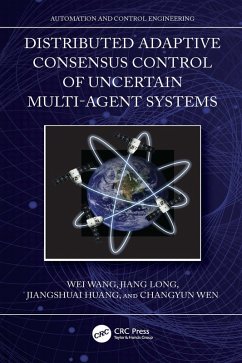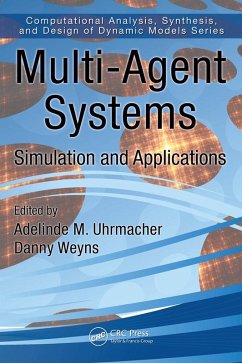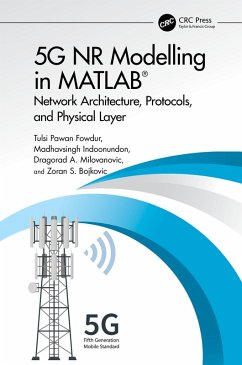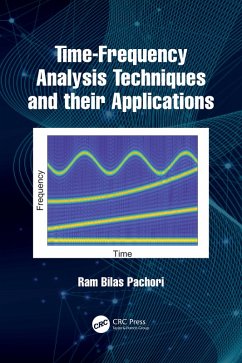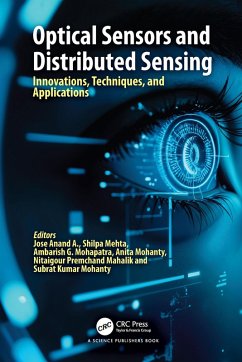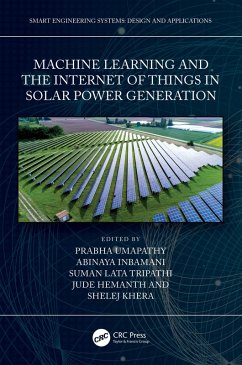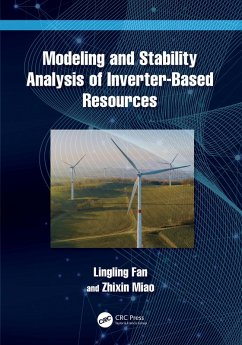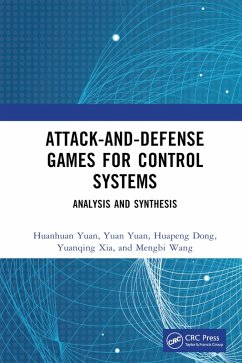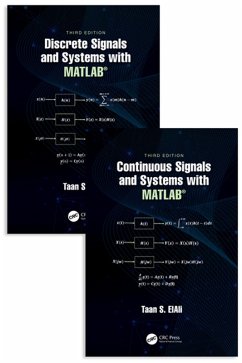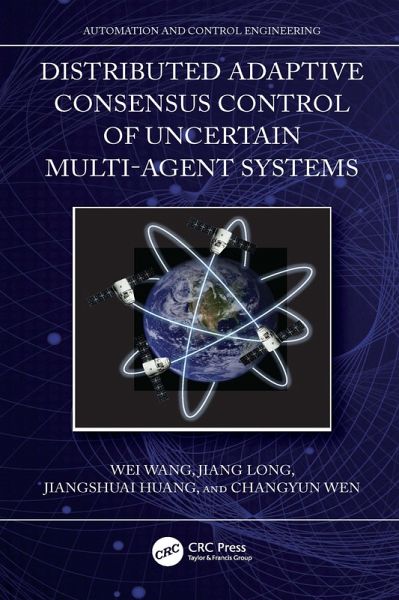
Distributed Adaptive Consensus Control of Uncertain Multi-Agent Systems (eBook, PDF)
Versandkostenfrei!
Sofort per Download lieferbar
55,95 €
inkl. MwSt.
Weitere Ausgaben:

PAYBACK Punkte
28 °P sammeln!
Multi-agent systems are special networked systems full of research interest and practical sense, which are abundant in real life, ranging from mobile robot networks, intelligent transportation management, to multiple spacecraft, surveillance and monitoring. Consensus control is one of the most typical and hot research issues for multi-agent systems. Distributed Adaptive Consensus Control of Uncertain Multi-agent Systems provides innovative technologies to design and analyze distributed adaptive consensus for multi-agent systems with model uncertainties.Based on the basic graph theory and adapt...
Multi-agent systems are special networked systems full of research interest and practical sense, which are abundant in real life, ranging from mobile robot networks, intelligent transportation management, to multiple spacecraft, surveillance and monitoring. Consensus control is one of the most typical and hot research issues for multi-agent systems. Distributed Adaptive Consensus Control of Uncertain Multi-agent Systems provides innovative technologies to design and analyze distributed adaptive consensus for multi-agent systems with model uncertainties.
Based on the basic graph theory and adaptive backstepping control, this monograph:
· Describes the state of the art on distributed adaptive control, finite-time consensus control and event-triggered consensus control
· Studies distributed adaptive consensus under directed communication graph condition: the methods with linearly parametric reference, hierarchical decomposition, and design of auxiliary filers
· Explores adaptive finite-time consensus for uncertain nonlinear systems
· Considers distributed adaptive consensus with event-triggered communication via state feedback and output feedback
· Investigates distributed adaptive formation control of nonholonomic mobile robots with experimental verification
· Provides distributed adaptive attitude synchronization control schemes for multiple spacecraft with event-triggered communication
Distributed Adaptive Consensus Control of Uncertain Multi-agent Systems can help engineering students and professionals to efficiently learn distributed adaptive control design tool for handling uncertain multi-agent systems with directed communication graph, guaranteeing finite-time convergence and saving communication resources.
Based on the basic graph theory and adaptive backstepping control, this monograph:
· Describes the state of the art on distributed adaptive control, finite-time consensus control and event-triggered consensus control
· Studies distributed adaptive consensus under directed communication graph condition: the methods with linearly parametric reference, hierarchical decomposition, and design of auxiliary filers
· Explores adaptive finite-time consensus for uncertain nonlinear systems
· Considers distributed adaptive consensus with event-triggered communication via state feedback and output feedback
· Investigates distributed adaptive formation control of nonholonomic mobile robots with experimental verification
· Provides distributed adaptive attitude synchronization control schemes for multiple spacecraft with event-triggered communication
Distributed Adaptive Consensus Control of Uncertain Multi-agent Systems can help engineering students and professionals to efficiently learn distributed adaptive control design tool for handling uncertain multi-agent systems with directed communication graph, guaranteeing finite-time convergence and saving communication resources.
Dieser Download kann aus rechtlichen Gründen nur mit Rechnungsadresse in A, B, BG, CY, CZ, D, DK, EW, E, FIN, F, GR, HR, H, IRL, I, LT, L, LR, M, NL, PL, P, R, S, SLO, SK ausgeliefert werden.




